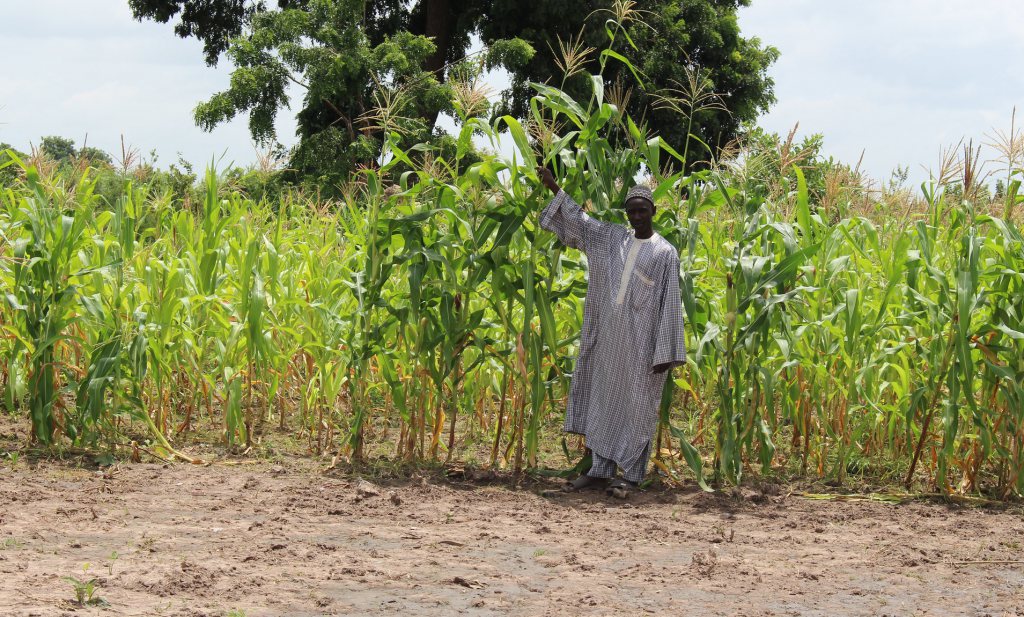In our World of many people, farmers are the hope for food sufficiency and food security to meet the nutritional and dietary needs of the populace. In developing countries, smallholder farmers cultivate a higher percentage of food consumed employing the skills and techniques locally available.
Sadly, most of the food produced by these smallholder farmers are produced on a small acreage of land, largely dependent on manual labour and simple manual tools, local knowledge and inputs (especially seeds) used, low productivity achieved in terms of yield, high adoption of low technology for storage (whereas post harvest losses are still high depending on the perishable nature of the produce) and value addition to produce is extremely low (where possible drying of produce is the most preferred means for selected produce). This is a typical life and reality of any smallholder farmer. The only motivation available for such smallholder farmers is that it is the only means to survive!
In essence, a smallholder farmer only adopts low-technology practices (and many times, obsolete) that are accessible and affordable to them instead of improved practices or technology that are expensive and unaffordable although it would help to increase productivity. That is why smallholding farming is linked with low productivity and low efficiency within the production activities. Therefore, the resulting effect from low productivity is low revenue, which has a negative impact on future expansion and could alter their livelihood. So, the reality of many smallholder farmers is that they hardly meet their daily monetary needs as their potential is being limited due to their low productivity. Thus, the reason for living in poverty (This is a state, which is transitioning though and according to the World Bank poverty is measured as the number of people living on less than $1.90 per day (monetary terms). In addition, multidimensional poverty included access to educational and infrastructural services as key components).
Therefore, it is important to set the record straight that smallholder farmers are perceived to be poor not because of the scale of their production rather the inefficiency that exists within their activities which result in low productivity and low quality, and thus affect their livelihood adversely. As much as smallholder farmers put in the efforts (physical and emotional) in primary production, there is a need to put in the business skills that ensure that inefficiencies within production activities are well identified and properly managed to achieve high produce quality, coupled with good marketing strategies and produce diversification (and more value addition to produce).
In essence, a smallholder farmer only adopts low-technology practices (and many times, obsolete) that are accessible and affordable to them instead of improved practices or technology that are expensive and unaffordable although it would help to increase productivity. That is why smallholding farming is linked with low productivity and low efficiency within the production activities. Therefore, the resulting effect from low productivity is low revenue, which has a negative impact on future expansion and could alter their livelihood. So, the reality of many smallholder farmers is that they hardly meet their daily monetary needs as their potential is being limited due to their low productivity. Thus, the reason for living in poverty (This is a state, which is transitioning though and according to the World Bank poverty is measured as the number of people living on less than $1.90 per day (monetary terms). In addition, multidimensional poverty included access to educational and infrastructural services as key components).
Therefore, it is important to set the record straight that smallholder farmers are perceived to be poor not because of the scale of their production rather the inefficiency that exists within their activities which result in low productivity and low quality, and thus affect their livelihood adversely. As much as smallholder farmers put in the efforts (physical and emotional) in primary production, there is a need to put in the business skills that ensure that inefficiencies within production activities are well identified and properly managed to achieve high produce quality, coupled with good marketing strategies and produce diversification (and more value addition to produce).
Related




I agree. Efficiency and high productivity are very important to improve earnings for smallholder farmers. Knowledge about good agricultural practices cannot be overestimated. But I think it is even more important to keep in mind not to make too much debt and be aware of the environment. Many times food production increases while farmers make themselves dependent on debts for fertilizers, pesticides, and technology. This increase of food production is not a success when farmers sink into debt. It often increases poverty on the countryside.
@Ton Terlouw. Thank you for your comment. Yes, I am a Nigerian and I work with smallholder farmers. Efficiency and high productivity are very important to improve their earnings. Yes, there are certain obligations many farmers could not attend to due to their current productivity (earnings). Farming must be perceived as a business rather than poverty intervention schemes.
Initially I thought this column came from a white colonialist. But no, this column is the work of a native African. This presumption is perhaps the result of an attitude that should be countered. Even though I really condemn preoccupation it is so difficult to avoid it. Therefor my deepest apologies for this presumption.
Having said that, is efficiency and management a goal to achieve for small holder farmers? Are they dissatisfied with their lives?
Perhaps wrong questions from someone far away, but nevertheless honestly meant.